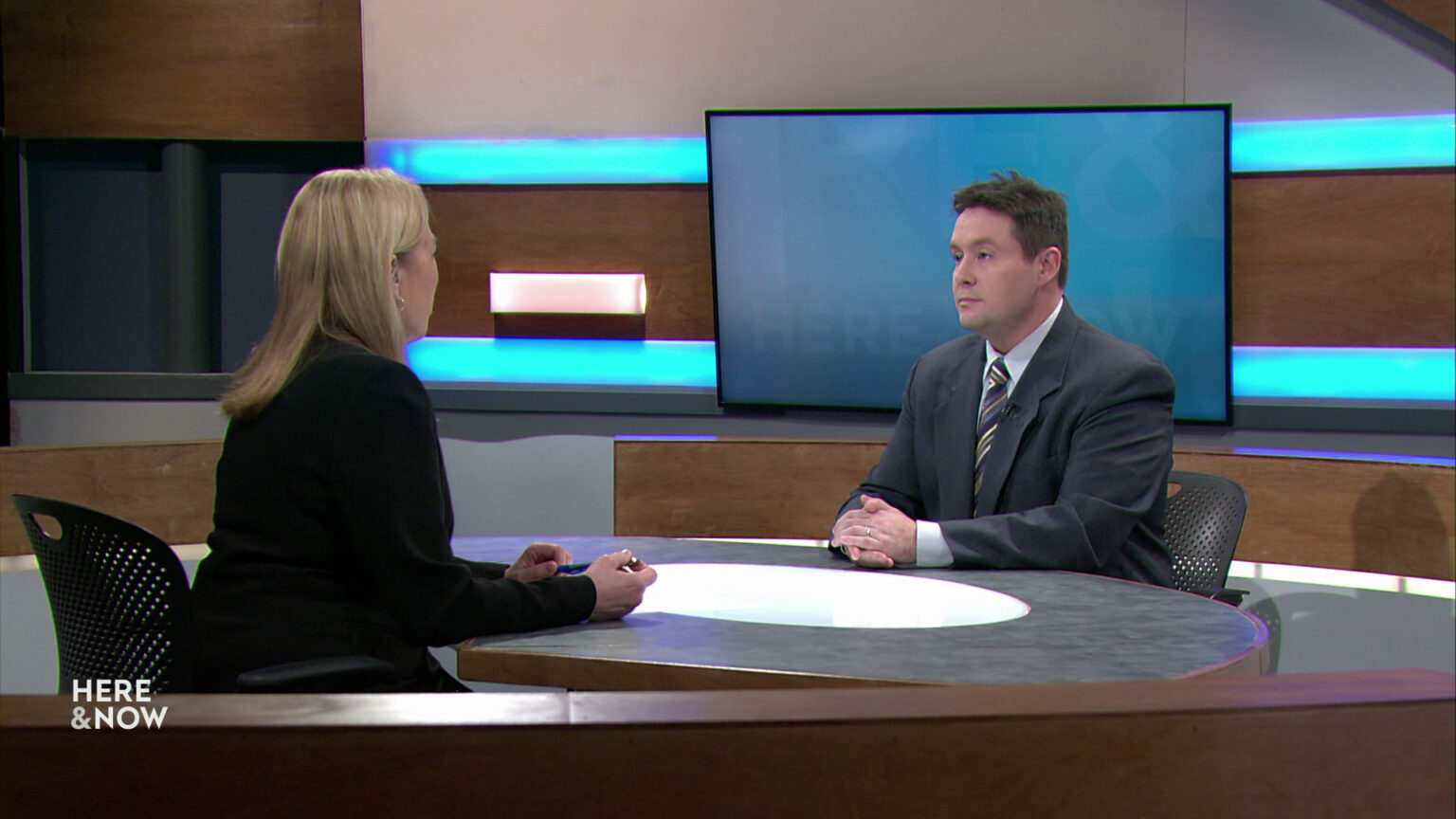'Here & Now' Highlights: Zac Schultz, Speaker Robin Vos, Carla Vigue, Secretary Missy Hughes
Here's what guests on the Dec. 22, 2023 episode said about the Wisconsin Supreme Court's redistricting lawsuit order, priorities for Assembly Republicans, UW-Madison scholarships for enrolled tribal members, and tech company jobs in Racine County.
By Frederica Freyberg, Kristian Knutsen | Here & Now
December 26, 2023

Frederica Freyberg and Zac Schultz (Credit: PBS Wisconsin)
The Wisconsin Supreme Court has ordered new legislative district maps be established in time for the 2024 elections in a decision that reverses approaches taken in the previous round of lawsuits over redistricting — Here & Now senior political reporter Zac Schultz summarized the ruling. Assembly Speaker Robin Vos looked back at the past year in the state Legislature, and described his focus on DEI in state funding for the Universities of Wisconsin. UW-Madison is going to start providing broad financial support to students who are enrolled members of federally recognized tribes in the state – Carla Vigue, the UW’s director of tribal relations, considered the significance of this initiative. Wisconsin Economic Development Corporation Secretary and CEO Missy Hughes discussed the impacts of tech companies expanding their operations and hiring more workers in the state’s southeast corner.
Zac Schultz
Senior political reporter, Here & Now
- The Wisconsin Supreme Court issued its ruling in a high-profile lawsuit and overturned Wisconsin’s legislative district maps. The four liberal justices found in favor of the plaintiffs, with the three conservative justices dissenting. The court ordered the Legislature to take the first crack at drawing new maps for their districts, but said it would step in if that fails – working concurrently to ensure timeliness. Issued about a month after oral arguments in the case, the decision was expected among political observers. Schultz describes what stood out, however, in terms of its specifics.
- “It was absolutely the timeline of this and the fact that they’re getting away from ‘least change.’ That was the criteria that the last court invented for which they would consider these maps, saying that they wanted to change them as little as possible. This court said ‘least change’ is not a factor: ‘We don’t think it should be used at all, it will be thrown out.’ They are also going to look at partisan fairness as a metric. So, this court has decided that they’re going to give the Legislature a chance to draw maps and see if they can come to a deal with the governor. Whether that happens is unlikely.
Assembly Speaker Robin Vos
R-Rochester
- The Speaker of the Wisconsin Assembly sat for an interview ahead of the state Supreme Court ruling ordering drawing new legislative district maps, but has said the reason Republicans win broad majorities in the Legislature is because they have better candidates and not more favorable maps. Vos also spoke to the vote by the Universities of Wisconsin Board of Regents to accept hundreds of millions of state funding in return for reducing diversity, equity and inclusion efforts.
- Vos: “So, I think a lot of the things that we did were good common sense, middle ground, finding ways to get to an answer that show that DEI isn’t about diversifying the campus. That’s what we believe in. We actually want more diversity. I want people to come to the campus no matter what color or race you are. What they want is people giving special privileges based on certain categories that they like. Well, that’s not the way the world should be. So diversity is what we support. But division, exclusion and indoctrination, which is what it’s become, is what we’re opposed to.”
Carla Vigue
Director of Tribal Relations, UW-Madison
- Starting in fall 2024, UW-Madison will start its Wisconsin Tribal Education Promise program. Members of 11 federally recognized tribes in the state will be able to attend the flagship campus with all expenses paid, including tuition, fees, books and living expenses. In addition, tribal members who are students at the University of Wisconsin Law School and School of Medicine and Public Health will have their full tuition covered. Vigue said the admissions office is already busy with interested students. She worked over the last year with tribal governments across Wisconsin on the details of the program.
- Vigue: “I think when we talked about it, like I said, it’s really about taking care of our community. I’m Native American. I grew up on the Oneida Indian reservation. I have two little boys, Hunter and Otto. And the way we always think about community is, how do we give back and how do we take care of the next seven generations. So it’s not just about decisions that are good for me or my little boys or even their kids, but seven generations down the road — how are we taking care of those seven generations?
Secretary Missy Hughes
CEO, Wisconsin Economic Development Corporation
- Microsoft has finalized the purchase of more than one thousand acres of land in Racine County, with 600 acres purchased from the Village of Mount Pleasant. The tech giant says it plans to spend billions of dollars to construct new data centers.
- Hughes: “Having a company like Microsoft, a true blue-chip American company deciding to create such an opportunity in Wisconsin is incredibly important and really exciting. It brings in high-tech, artificial intelligence, all of these things that we see in the economy of the future. And so Microsoft choosing Wisconsin is really a testament to what we’ve done to create the workforce that they need to create the infrastructure that they need. We’re so excited to have them here.
Watch new episodes of Here & Now at 7:30 p.m. on Fridays.
 Passport
Passport











Follow Us